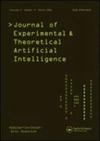Attention-based 3D convolutional networks
IF 1.7
4区 计算机科学
Q3 COMPUTER SCIENCE, ARTIFICIAL INTELLIGENCE
Journal of Experimental & Theoretical Artificial Intelligence
Pub Date : 2022-02-13
DOI:10.1080/0952813X.2021.1960625
引用次数: 1
Abstract
ABSTRACT Being simple and portable, the three-dimensional (3D) convolution network has achieved great success in action recognition. However, its applicability in spatiotemporal feature learning is not evident. This study aims to improve the 3D convolution model and propose a flexible and significant attention module for the extraction of spatiotemporal information. Our first contribution is a self-additive attention module and a feature-based attention module, which is a simple yet effective method for measuring the spatiotemporal importance of a video. In self-additive attention, the spatiotemporal fusion between the frames is defined intuitively, where we set equivalent weights between the video frames manually. Further, the feature-based attention that is trained adaptively by the 3D convolution process combines the spatiotemporal information from the feature map. This study also focuses on attention fusion in learning the spatiotemporal characteristics for 3D convolution. The proposed attention fusion method exhibits outstanding performance in comparison to the recently developed attention modules and the latest 3D networks when applied to the data from the UCF101 and HMDB51 datasets. The experiments show consistent improvements, affirming the robustness of the method in extracting spatiotemporal attention.基于注意力的3D卷积网络
三维卷积网络具有简单、便携的特点,在动作识别方面取得了很大的成功。然而,它在时空特征学习中的适用性并不明显。本研究旨在对三维卷积模型进行改进,提出一种灵活有效的时空信息提取关注模块。我们的第一个贡献是一个自加性注意力模块和一个基于特征的注意力模块,这是一个简单而有效的方法来测量视频的时空重要性。在自加性关注中,通过手动设置视频帧间的等效权值,直观地定义帧间的时空融合。此外,通过三维卷积处理自适应训练的基于特征的注意力结合了来自特征图的时空信息。在三维卷积的时空特征学习中,重点研究了注意力融合。在UCF101和HMDB51数据集上,与最近开发的注意力模块和最新的3D网络相比,所提出的注意力融合方法表现出优异的性能。实验结果表明,该方法在提取时空注意方面具有较好的鲁棒性。
本文章由计算机程序翻译,如有差异,请以英文原文为准。
求助全文
约1分钟内获得全文
求助全文
来源期刊
CiteScore
6.10
自引率
4.50%
发文量
89
审稿时长
>12 weeks
期刊介绍:
Journal of Experimental & Theoretical Artificial Intelligence (JETAI) is a world leading journal dedicated to publishing high quality, rigorously reviewed, original papers in artificial intelligence (AI) research.
The journal features work in all subfields of AI research and accepts both theoretical and applied research. Topics covered include, but are not limited to, the following:
• cognitive science
• games
• learning
• knowledge representation
• memory and neural system modelling
• perception
• problem-solving

 求助内容:
求助内容: 应助结果提醒方式:
应助结果提醒方式:


